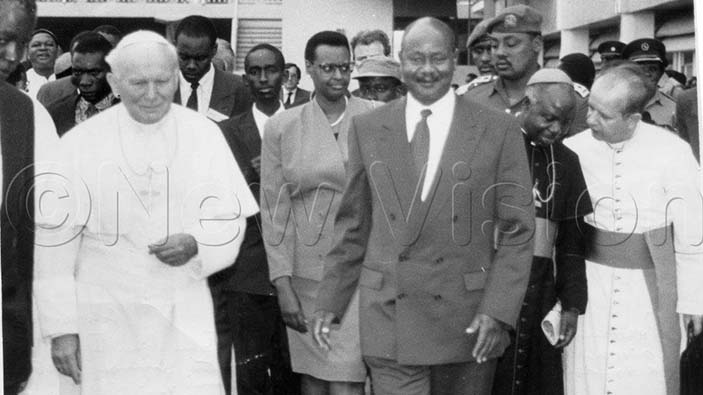By Our Reporter
As of April 21, 2025, President Yoweri Kaguta Museveni of Uganda has officially spent 39 years and 3 months in power, making him one of the finest-serving leaders in the world.
Remarkably, during this period, Museveni has outlasted the tenures of three popes—a testament to both his political strength and the rapidly changing global religious landscape.
Museveni first took office on January 29, 1986, after a successful armed struggle that brought an end to years of political turmoil.
At the time, Pope John Paul II was leading the Catholic Church, a role he had held since 1978. Museveni’s presidency overlapped with the last 19 years of Pope John Paul II’s papacy, which ended with the pope’s death in 2005.
Following that, Pope Benedict XVI ascended to the papacy and served until his resignation in 2013—a rare occurrence in the Church’s history.
Throughout Benedict’s eight-year tenure, Museveni remained firmly in power, continuing to shape Uganda’s political and socio-economic direction.
Pope Francis, who became pope in 2013, also served entirely during Museveni’s presidency. His papacy came to a close with his passing on April 21, 2025, at the age of 88.
Thus, Museveni has served under three popes—each with distinct global impacts—while maintaining a firm grip on leadership in Uganda.
This unique historical overlap between Museveni’s political career and the Catholic Church’s leadership shifts highlights the president’s enduring influence on the African continent.
As Uganda prepares for its next electoral cycle, questions about succession, democratic transition, and generational leadership remain pressing.
Museveni’s continued presidency is not only a political story but also a reflection of regional stability, resilience, and the evolving role of leadership in a rapidly changing world.


